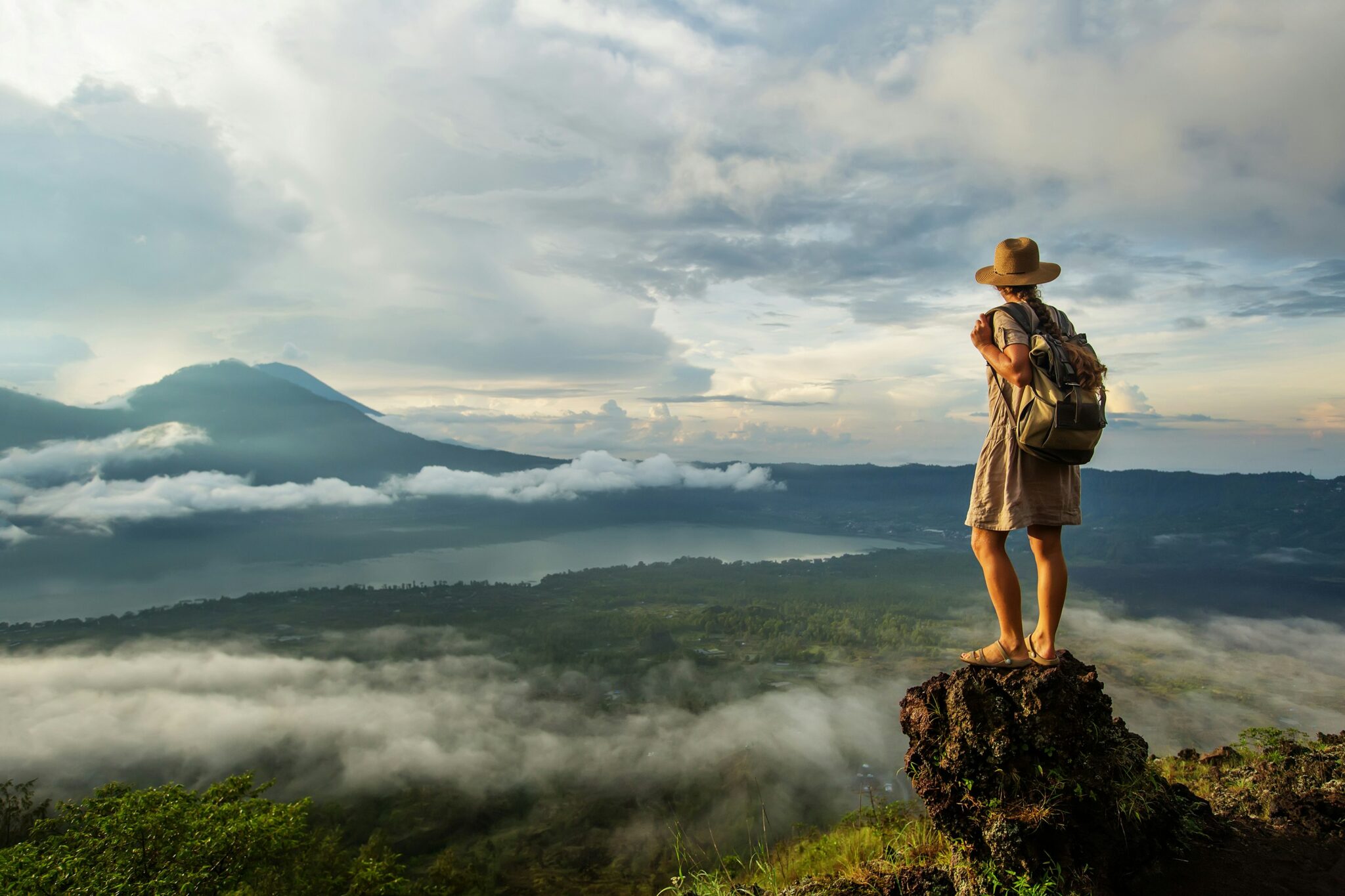Ecotourism is a form of responsible travel that started to gain traction in the 1980s. It’s a philosophy that aims to center trips around maintaining natural resources and leaving the environment untouched while ensuring local communities are cared for. Essentially, this type of travel focuses on preserving the biodiversity of a destination and the culture of the area.

You may have heard other words used in place of ecotourism, such as eco-friendly, conscious traveling, and ethical or sustainable tourism. The goal of these labels is the same: to ensure the environment, the culture, and the locals of these travel destinations are protected. This all starts with travel companies and travelers becoming aware of their impact.
What defines true ecotourism?
There are four forces of impact that ecotourism considers in definition…
Physical impact: Ecotourism aims to lessen the impact on the environment to ensure the land, parks, and other natural areas remain untouched and safe from travelers. This also includes the well-being of wildlife and marine life.
Cultural impact: Eco-friendly travel aims to ensure local and Indigenous communities are preserved, that their stories and cultures are taught through tours, and that sacred spaces, rituals, and landmarks are maintained.
Psychological impact: Another goal of ecotourism is to ensure local communities are left unharmed during tours and visitations from travelers. This category can undertake anything from tourist dress codes and waste to increased traffic. The goal is to reduce and remove any impact on the day-to-day life of residents.
Financial impact: One of the most important goals of ecotourism is to help preserve the land by gathering money in exchange for lodging and tour services. These financial gains help maintain the grounds, parks, and communities, along with ensuring local communities are directly profiting from the travel/tours. Travel to these areas should leave the communities better off than they were before tourism programs.

How does ecotourism work?
Is it possible to travel without impacting the places you travel to? Yes. A lot of it is down to common sense. There are also touring agencies that will take care of all the hard work and book the travel and accommodations for you too.
These agencies focus on eco-friendly destinations and itineraries and look for ways to minimize the physical, social, and psychological impacts that could be created by visitors. They ensure that part of the profits is returned to conserving the land and that the local communities and guides are cared for. To do this well, eco-centric tour firms partner with local communities and Indigenous groups. They must understand and, in a way, be a part of the destination to plan the most eco-friendly trip for their clients.
What to look for when it comes to eco-friendly tours and accommodations
More and more eco-friendly tours are popping up around the globe. In the past, you would typically find eco-friendly options in natural areas with large forests, rainforests, wildlife preserves, national parks, and beaches. But now, even city tours can support eco-friendly activities. The possibilities are endless.

When booking, look for the following options:
Eco-friendly hotels and resorts.
Tours that offset their carbon footprint either by walking/biking or by giving back to nature (planting trees, supporting local farms, etc.)
Companies and tours that are recognized as “green” or eco-friendly through larger organizations that monitor behavior and activities.
Guides who are from the communities you are visiting.
Ecotourism aims to connect people across the globe and while doing so be gentle to the planet. It’s a wonderful way to travel. There are some amazing eco-tourist spots in this world. Choose yours and you will be on your way.



